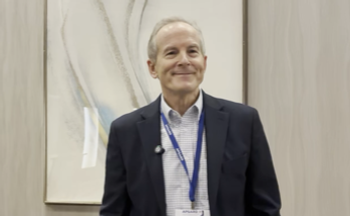
Learning About the Polycrisis of Mental Health and Well-Being
Key Takeaways
- The APA meeting introduced the concept of polycrisis, highlighting interconnected global challenges like climate change, pandemics, and social unrest.
- A Learning Lab session emphasized therapeutic opportunities, or "polyopportunities," to address these crises, chaired by Dr. Moffic.
How do psychiatrists feel about the current polycrises? “Overwhelmed.”
PSYCHIATRIC VIEWS ON THE DAILY NEWS
Previously, in a video and in a column, I covered the unprecedented rally for mental health at the annual meeting of the American Psychiatric Association (APA). Today, I want to provide a summary of another meeting activity that focused on the unprecedented combination of social psychiatric challenges that have come to be called a polycrisis.
As the process of choosing seminars evolved, the timing could not have turned out to be better. Just before the inauguration of President Trump, a group of psychiatrist colleagues, with myself as appointed Chair, were invited to conduct a Learning Lab at the annual APA meeting coming up in Los Angeles. None of us had actually done one of these or participated in any before. The difference with usual sessions was the intent to emphasize discussion, using about 10 round tables of participation. It was not to be recorded.
By the time of the meeting, the polycrisis in the United States and globally was escalating: wars, climate change, pandemics, authoritarian leadership, burnout, and possibly AI, for instances. These are “wicked” crises, difficult challenges in their own rights to overcome, but which overlap and reinforce each other.1 Both at this session and more generally, it seemed like polycrisis was a new word and concept for many psychiatrists.
In the meanwhile, the collective mental health of the public has been deteriorating in the US: elimination or reduction of various resources just as anxiety, depression, posttraumatic stress disorder, and “the social psychopathologies” like racism, anti-Semitism, Islamophobia, and transphobia are escalating.
Coming in, one of our questions for the lab was: What could psychiatry do to address and reduce this public mental health deterioration? I began with suggesting the polycrisis was like the Chinese character for crisis: danger and opportunity. The danger was all our social psychiatric crises; I suggested the opportunity was to address them in a therapeutic way in what I called a polyopportunity.
As the session opened and developed, more and more attendees came in, necessitating putting together several of the tables in a kind of oblong configuration. We began and, off and on, added a personal introduction of each, with most coming from the United States, Canada, and Brazil. Diversity in many ways was obvious and directly conveyed. Diversity, equity, and inclusion was alive and well here. No major disagreements or conflicts emerged.
After starting with some prepared content on the connection of climate change to war, using a clinical case example, another of the faculty asked all for a 1-word response to the presentation. The words varied, but “overwhelmed” was the most common. As time went on, other faculty brought up the concerns about Gaza, Islamophobia, and anti-Semitism.
The one opening request that seemed to carry through the entire session, with nary an attendee leaving, was how to decide what to do personally and professionally, professional including with patients who were also feeling overwhelmed with the polycrisis. Basically, the main polyopportunity “actionable” conclusions which emerged were:
- Do something with what you do best, so in my case that is writing.
- Take care of yourself, including ways to imagine alternative realities.
- Join sympathetic groups, small and large, for support and collaboration, just like this Learning Lab as an example.
Taken together, we could say that we had a rally to address the polycrisis.
Dr Moffic is an award-winning psychiatrist who specialized in the cultural and ethical aspects of psychiatry and is now in retirement and retirement as a private pro bono community psychiatrist. A prolific writer and speaker, he has done a weekday column titled “Psychiatric Views on the Daily News” and a weekly video, “Psychiatry & Society,” since the COVID-19 pandemic emerged. He was chosen to receive the 2024 Abraham Halpern Humanitarian Award from the American Association for Social Psychiatry. Previously, he received the Administrative Award in 2016 from the American Psychiatric Association, the one-time designation of being a Hero of Public Psychiatry from the Speaker of the Assembly of the APA in 2002, and the Exemplary Psychiatrist Award from the National Alliance for the Mentally Ill in 1991. He presented the third Rabbi Jeffrey B. Stiffman lecture at Congregation Shaare Emeth in St. Louis on Sunday, May 19, 2024. He is an advocate and activist for mental health issues related to climate instability, physician burnout, and xenophobia. He is now editing the final book in a 4-volume series on religions and psychiatry for Springer: Islamophobia, anti-Semitism, Christianity, and now The Eastern Religions, and Spirituality. He serves on the Editorial Board of Psychiatric Times.
Reference
1. Hoyer D, Bennett JS, Reddish J, et al.
Newsletter
Receive trusted psychiatric news, expert analysis, and clinical insights — subscribe today to support your practice and your patients.







